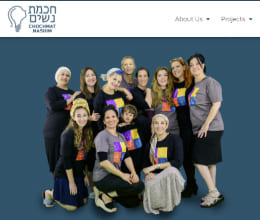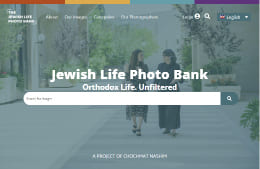Making Aliyah means leaving people behind. So, when my husband’s siblings asked us to meet them halfway in Madrid, we said yes.
I expected to give my kids a week with family. I did not expect to give them a lesson on what it means to be a Jew in the outside world. Yet that’s exactly what happened.
For a week, unless we made it to one of the few kosher restaurants (clustered in one section of town) we could only eat what we made in the (kashered) apartment kitchen, or what we brought with us in our backpacks. It meant telling my children, who, as Jews living in Israel, have kosher food available almost everywhere they go, that what we had in the bags was what they had to eat. It meant reminding them that sometimes you can’t get everything you want. And, for kids who are used to being able to eat almost anywhere, it was a real change.
There were many things that were different in Madrid. As people who grew up in New Jersey, where supermarkets stock plenty of food that is easily identified as kosher, thanks to the symbols of the kashrut organisations, and as people who now live in Israel, not having food options was daunting. So, I schleppedaround the 13 pages provided by Chabad that listed the foods that are kosher, and felt awkward as I searched for something we could eat. Of course, fruits and vegetables were options but otherwise we were on our own. At least four backpacks accompanied us on every day-trip.
Aside from food, other experiences emphasised just how far we were from home. Our trip to the Prado Museum, for example. The first four or five rooms held various depictions of Jesus. Jesus on the cross, Jesus with the apostles, Jesus lying bleeding, dying Jesus, dead Jesus, baby Jesus…
It is wonderful to expose children to art, I just didn’t realise how much art was Christian, and specifically of the crucifixion. It’s hard for young children with little exposure to Christianity to understand why the death of a man makes up so much of the artwork.
I explained that, contrary to our daily lived experience, Jews are a very small minority in a much larger world, a world with different beliefs and different customs. Our day trip to Toledo made that truth even clearer. We walked through what was once the Jewish Quarter, now marked with little tiles of menorahs, and the words Chai and Sfarad (life and Spain in Hebrew). We heard stories of Jews who had lived there as long ago as 400 BCE, (or as the tour guide said “before Christ”, leading my seven-year-old to ask: “Who is that?”).
The ghosts of Jews past walked with us as we visited the synagogue turned church, entered the hidey-holes Jews used for their kosher food and private worship, and heard the stories of Jews told to either leave the city with no money and one animal — a near-certain death sentence — or convert.
Many thought this new wave of antisemitism would end, that they could ride it out. Yet it never did, and those Jews who worked so hard to keep their identity, even as they pretended to take a new one, eventually lost it. We will never know how many people are really Jewish or descendants of Jews in Spain, Portugal, and even Latin and Central America. Though at least one study shows 20 per cent of Spaniards have Jewish genes. Many of their descendants have family customs they can’t explain. From songs they sing, to candles they light, to strange family dietary customs.
The remnants of the Inquisition haunt Spain today. The synagogue in Madrid is unmarked, has security, and police presence during services. Here, they say, you don’t ask people their religion.
And yet, at the Chabad house on Friday night, we recognised the tunes sung by the Italian teens on a high-school trip, even if we didn’t know the words. The melody of the Passover song Chad Gadya seems to be universal. How amazing to be 3,000 miles away and able to connect with people you don’t know.
I enjoyed exposing my children to the larger world and teaching them what it means to be a Jew outside of Israel, even if it isn’t easy. But I appreciated much more showing them how blessed we are to live in a time when we never again have to be strangers in a strange land, at the mercy of the ruling powers.
Originally published in The Jewish Chronicle.


